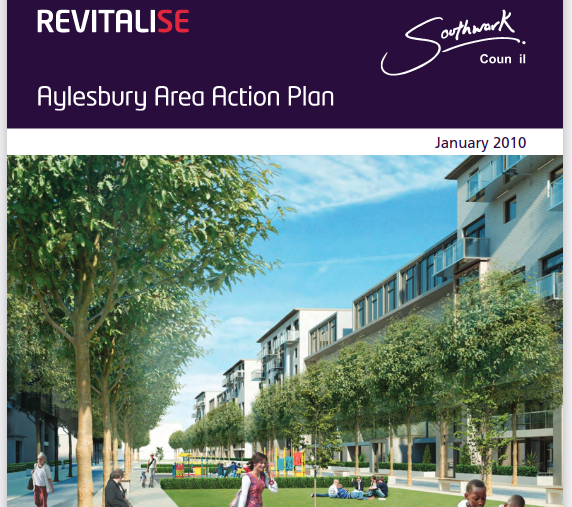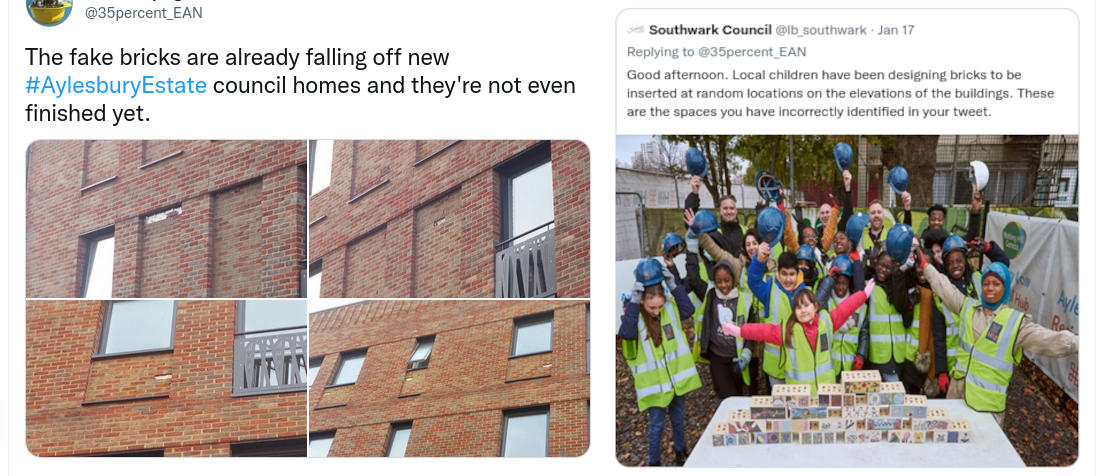
Southwark Council's Cabinet has agreed to increase the budget for its Aylesbury estate redevelopment costs by nearly £30m. The money will be used to buy-out leaseholders, to allow for the estate's continued demolition and redevelopment.
The Cabinet also approved a further £13.32m to cover an overspend on an original budget of £75m for estate redevelopment. £6.35m of this further expenditure is also for leaseholder buy-outs, with £6.97m for unspecified 'contract variations'.
Discretionary home loss and disturbance payments totalling £165,000 for Plot 18 council tenants over 55 were also agreed. The extra money brings Southwark's reported total budget for estate redevelopment costs up to £118.29m, to come from the council's Housing Investment Programme.
A new deal with Notting Hill Genesis
The same Cabinet meeting also agreed to make changes to the Development Partnership Agreement (DPA), the agreement made by Southwark with Notting Hill Genesis (NHG) for the estate's regeneration. This deal was first struck in 2014; major changes were approved in 2020 for the Aylesbury's First Development Site (FDS). The FDS variations saw Southwark pay NHG a gross £210.8m for 581 council homes, while leaving revenue generating free-market housing with NHG.
No details were given in the public report to the Cabinet about any of the proposed changes, or 'variations', or whether any money will be paid to NHG. A closed report including financial details and the impact on the Housing Investment Programme is unavailable to the public. We have submitted an FOI request for the closed report.
The end of the Aylesbury Area Action Plan
In another significant development, the Aylesbury Area Action Plan (AAP) is a step closer to being discarded. Despite protests from housing campaigners and residents the a much slimmed-down AAP has been incorporated into the New Southwark Plan (NSP) along with the Canada Water and Peckham & Nunhead AAPs, after approval by government inspectors. The AAP's generous affordable housing space standards have been retained and there is now a new NSP policy commitment, for the 'reprovision of at least 2,249 social rented homes'.

Social rent - no loss, but no gain
The social rent commitment is an important and welcome improvement on what would have been delivered under the outline planning permission held by NHG, which allowed for a loss of between 778 and 1,166 social rented units. But it will still mean that when the redevelopment is completed in 2036, we will have no more social rented housing on the estate, after 40 years, than we had in 1998, when the Aylesbury regeneration began.
It also raises the question of how the deal between Southwark and NHG, sealed by the DPA and a legal s106 agreement, will be changed and how much it will cost Southwark to do this. As we pointed out when Southwark took over the FDS the price is likely to be high and any money spent on the Aylesbury is money that is not available for building council housing elsewhere in the borough.
The Cabinet has promised a further report on the new deal with NHG. This must give the full details of its financial and other terms. Under the original outline planning agreement NHG had to provide all the affordable housing, including the social rented housing, at its own cost. Southwark must not simply take this over and pay NHG's tab. NHG should pay for all the affordable and social rented housing that it agreed to; Southwark should only pay for anything above this, to ensure that the Aylesbury regeneration delivers the homes that Southwark needs, not just cash to NHG.
PS - Fakery by design
We're glad to see that the fake bricks that were missing from the façade of one of the blocks on the First Development site have been replaced.

But it looks as if Southwark's explanation, that 'random' gaps had been left by design, to be filled by children's decorated bricks, was equally fake. All the replacement bricks look just like the rest and nothing like as lovely as the children's.
Nonetheless, if we see any more bits drop off, we will be sure to let Southwark know.